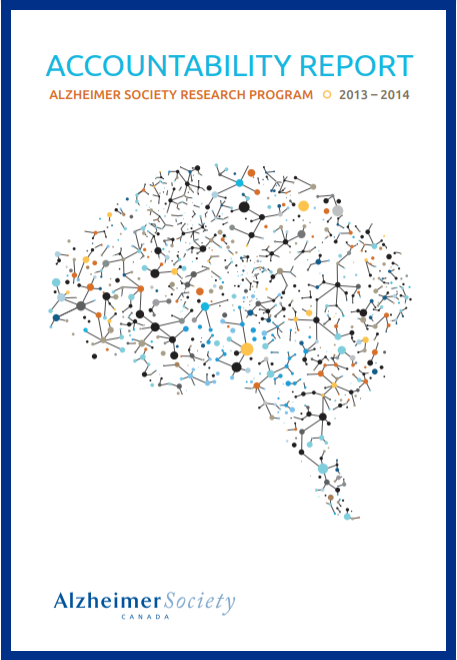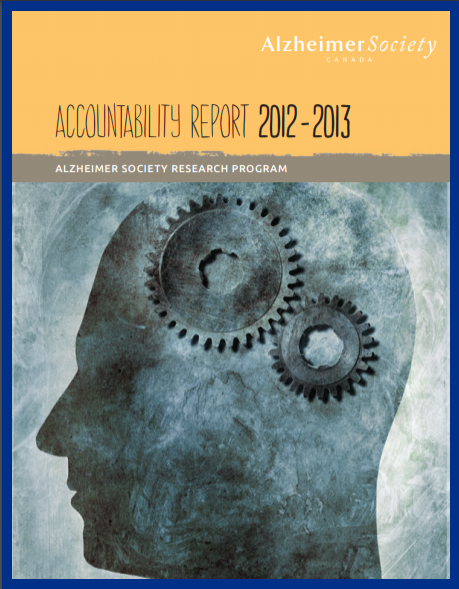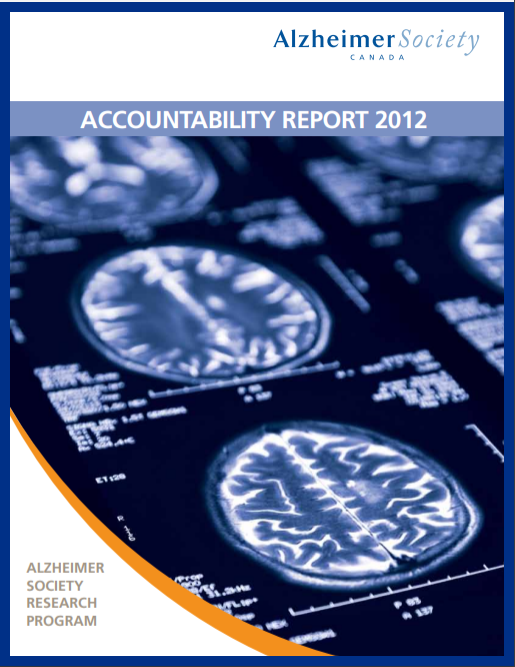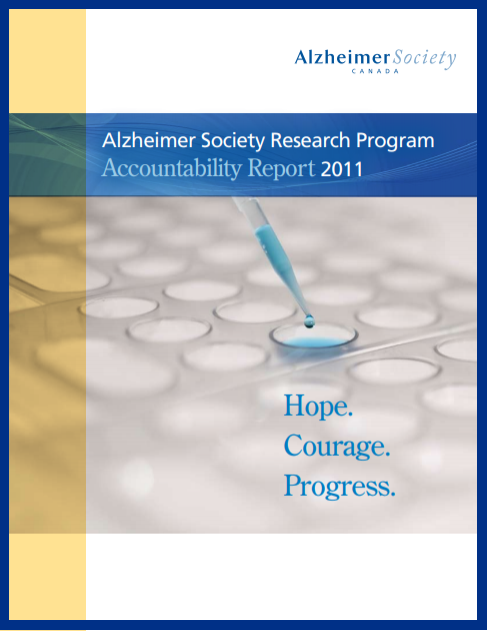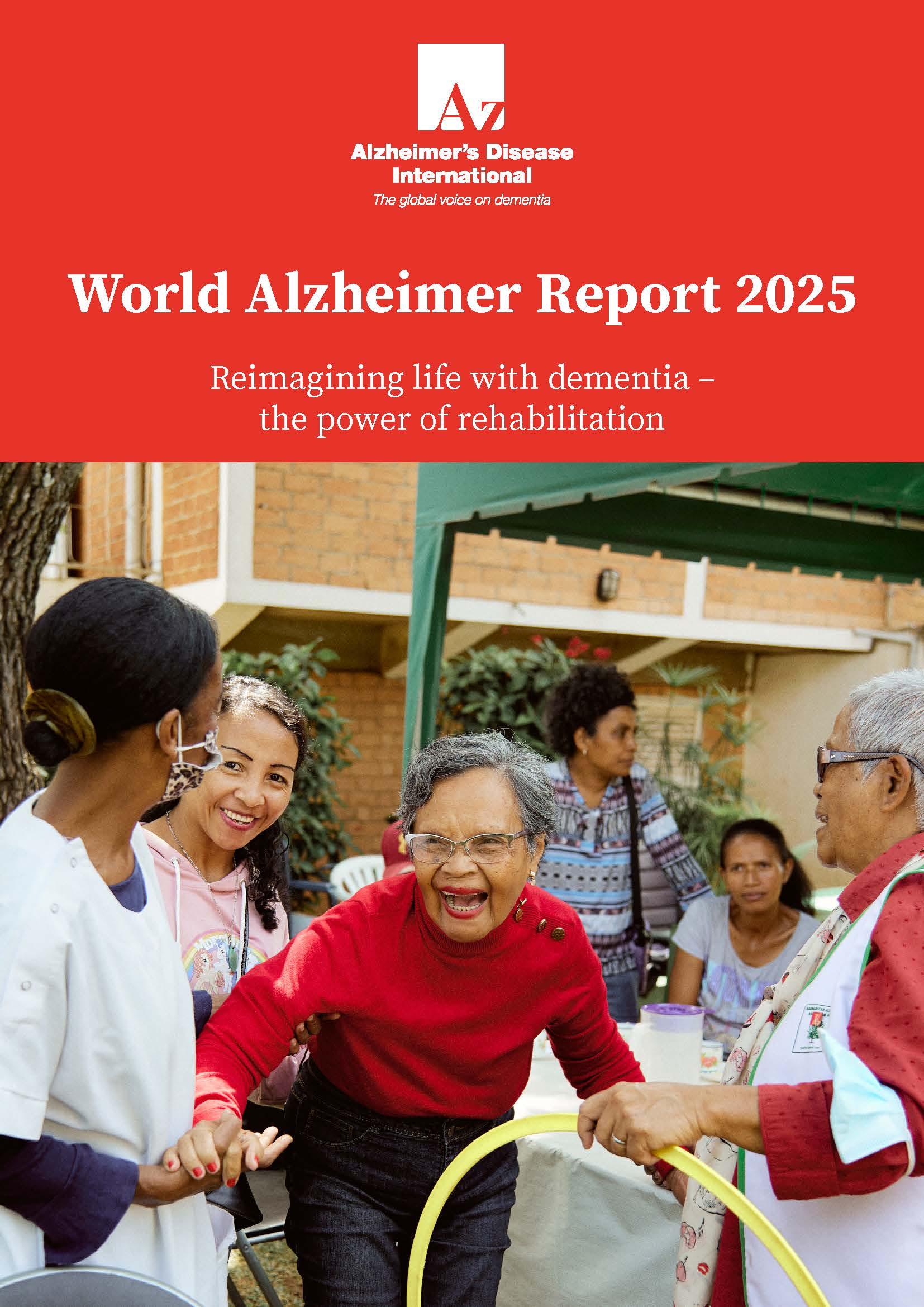Reports on dementia
Understand dementia and its impact in Canada and around the world. Here you will find reports by the Alzheimer Society of Canada, other leading Canadian organizations, and international authorities.

Alzheimer Society of Canada reports
Alzheimer Society of Canada: The Many Faces of Dementia in Canada: The Landmark Study Report #2
January 2024
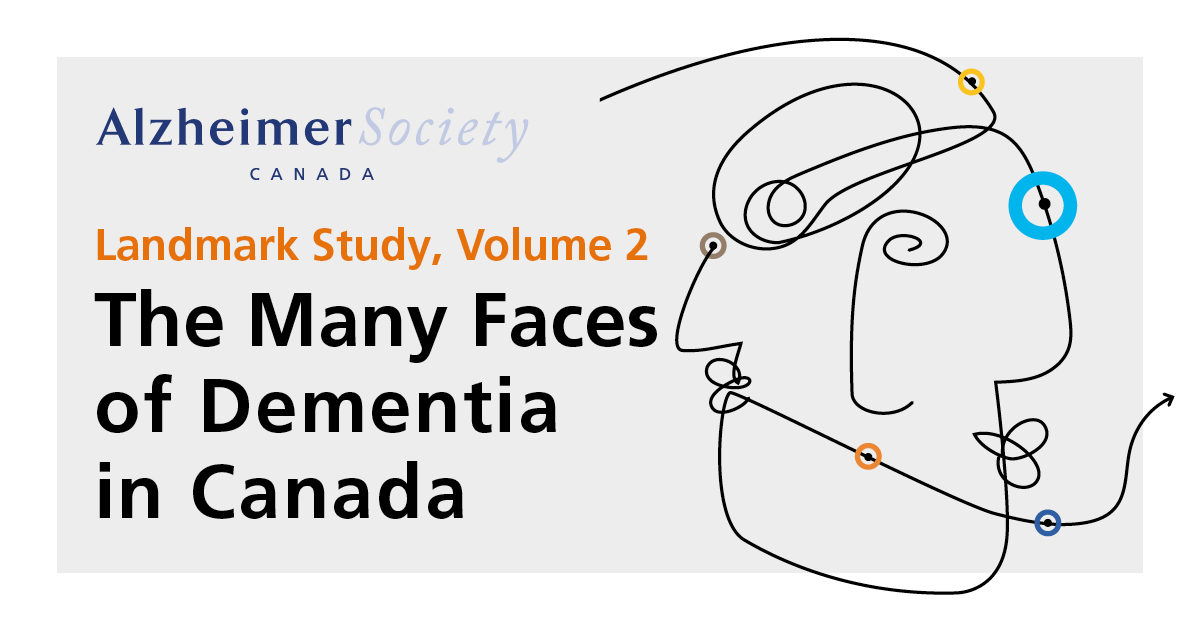
With the rapid rise of our aging population in Canada, this is one of the first studies that seeks to better understand the many demographics of dementia, so that no one is left behind and we’re able to serve their specific needs and those in their circle of care. Read highlights, stories and more at alzheimer.ca/manyfaces.
September 2022
The first of a series of three reports on dementia prevalence and costs in Canada, this volume covers the projections of people living with dementia in Canada from 2020 to 2050. It also recommends actions to reduce the risk of dementia that could potentially change the future of dementia in Canada.

January 2010
In this report, the Alzheimer Society of Canada provides a demographic and epidemiological profile and projected prevalence of dementia in Canada for a 30-year period. It also shares a future picture of the health and economic burden of dementia on Canadian Society and introduces a discussion of what can be done to reduce the impact.
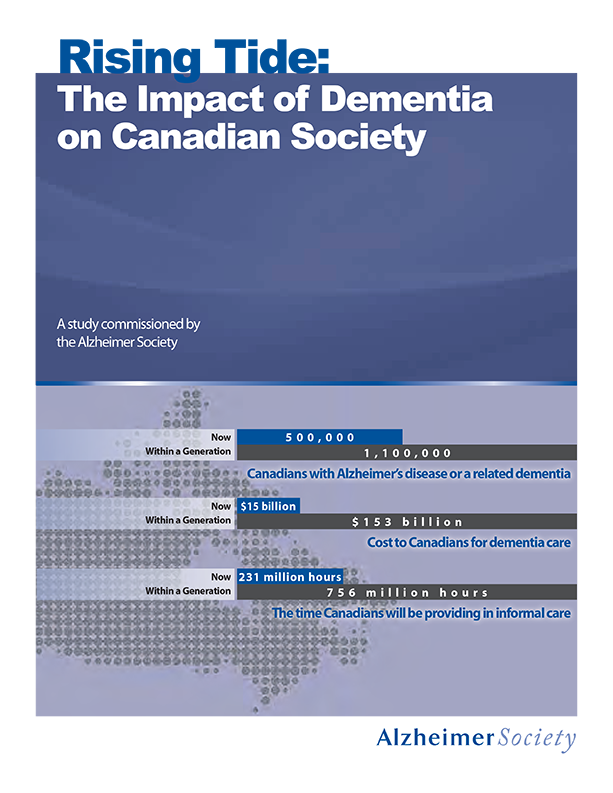
Other Canadian reports about dementia and related issues
August 2024
Centering Caregivers: Canadian National Survey Aimed at Increasing Awareness and Understanding Perspective of Caregivers for a Person Living with Dementia. The key objective of this study is to improve social awareness and knowledge of the experience of providing care for a person with dementia. The study includes a national survey designed and disseminated by the IFA. Check out the full Technical Report, including survey findings, below. Source: International Federation on Ageing.

September 2024
The European Brain Council (EBC) launched this Perspective Paper on the occasion of the World Alzheimer’s Month. The aim of this report is to rethink how Alzheimer’s treatment is approached and management. By offering a comprehensive review of current practices, identifying challenges, gaps and barriers, and proposing policy recommendations, this report seeks to reshape the Alzheimer’s disease healthcare pathway in ways that enhance outcomes and quality of life for all involved, and reduce the impact on society. Source: The European Brain Council (EBC).
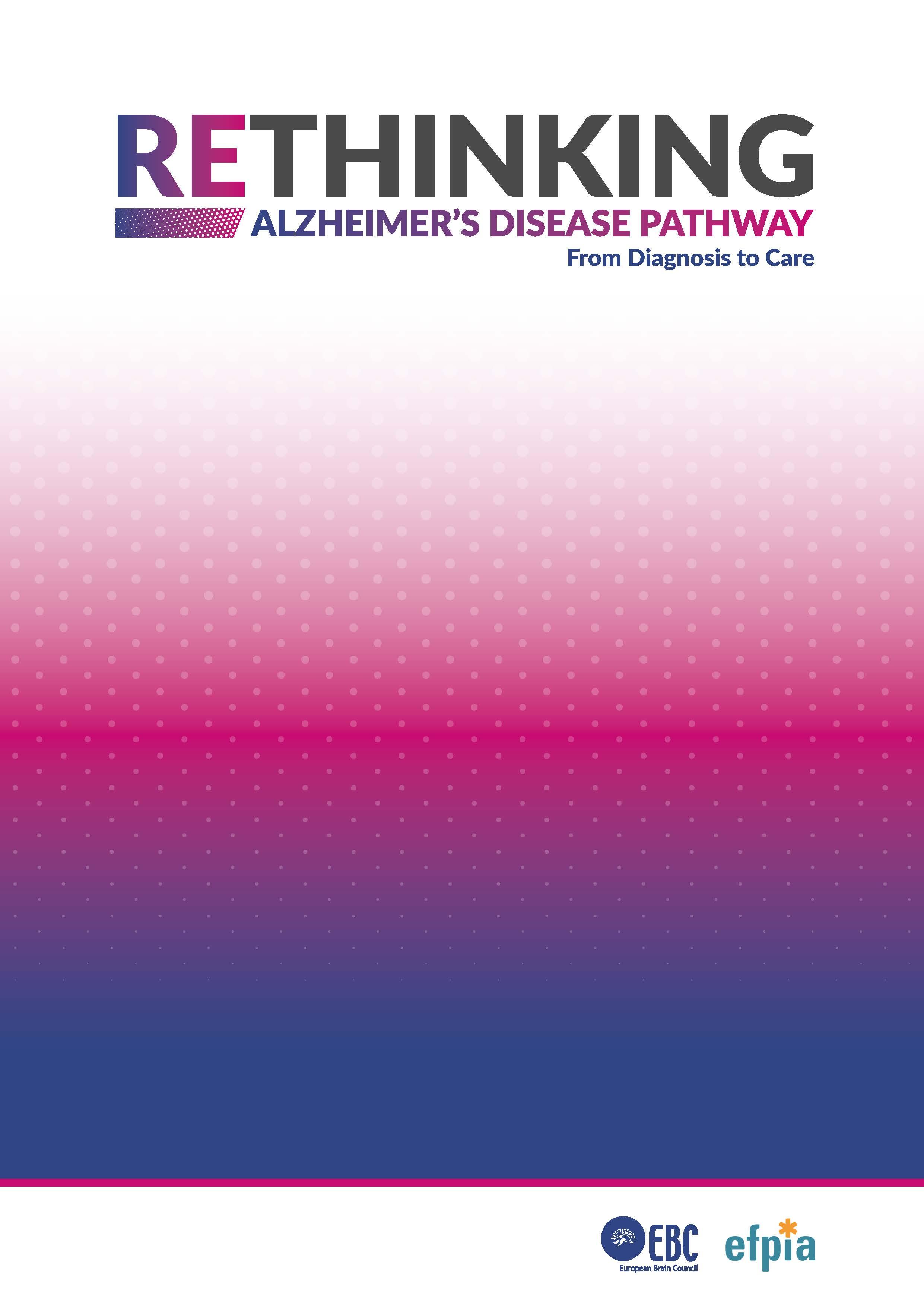
July 2024
The National Standard of Canada CSA Z2004:24, aims to enhance, strengthen, and expand the support for the mental health and well-being of residents living in long-term care and assisted living settings, including those without mental health symptoms or conditions and those with or at risk of developing them. Source: Canadian Standards Association.
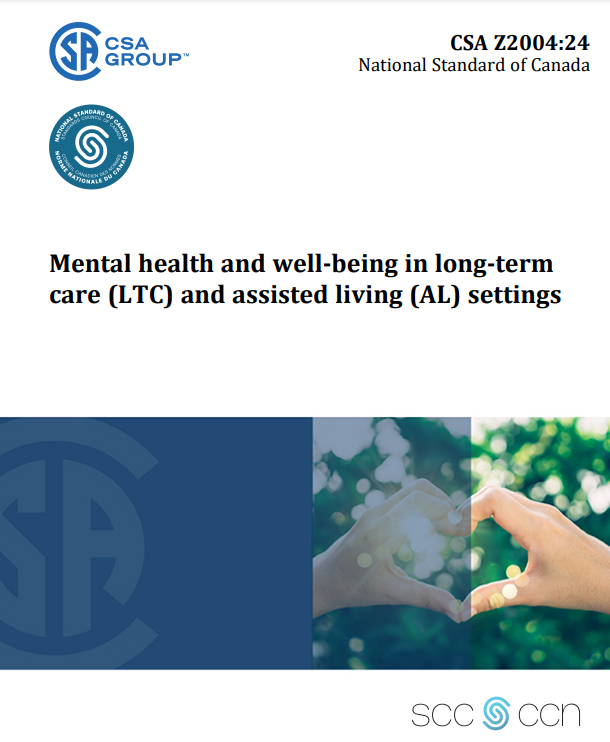
May 2024
Caring in Canada provides an in-depth analysis of the survey results collected in the National Caregiving Survey completed by more than 3,000 caregivers and care providers from across Canada. Source: Canadian Centre for Caregiving Excellence.
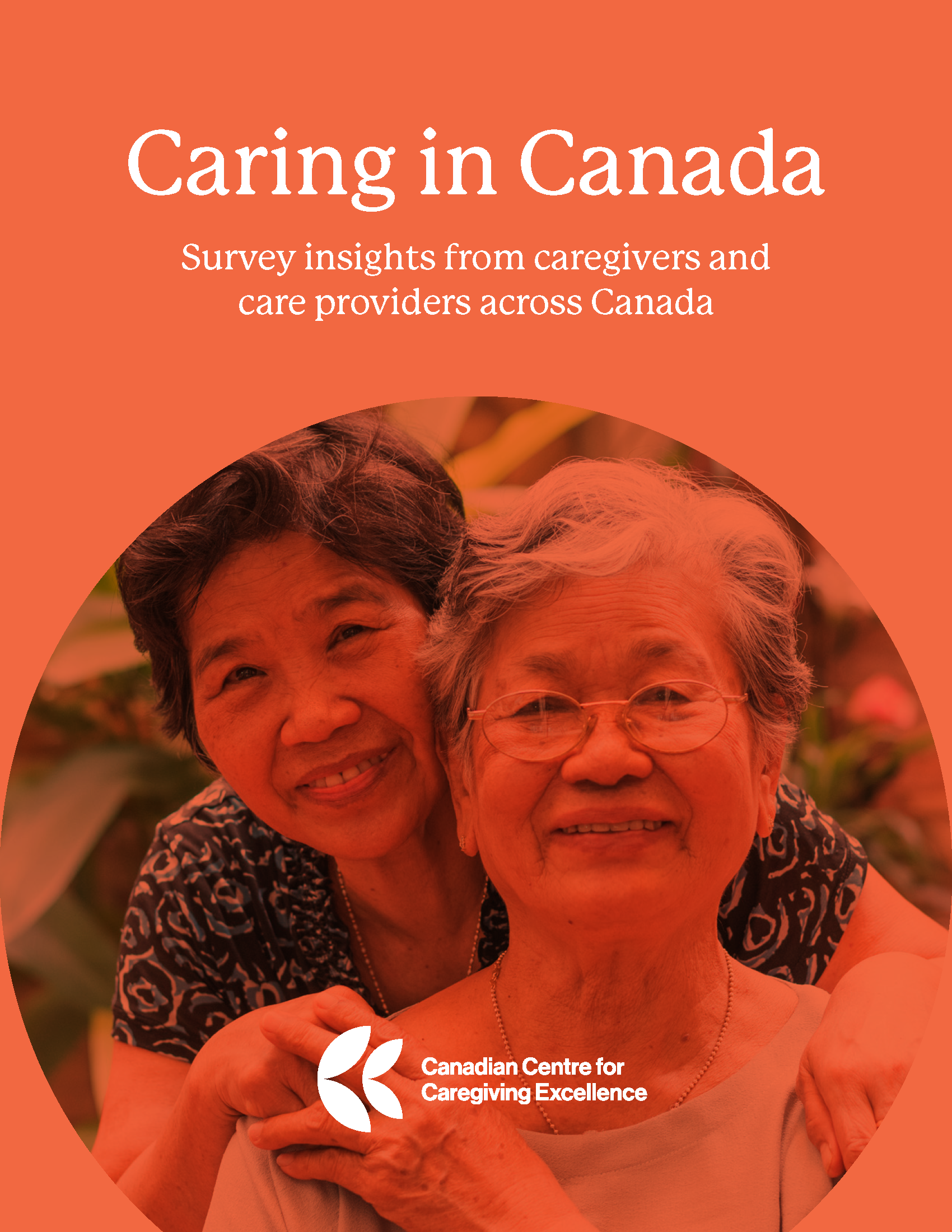
January 2024
This report by the Royal Society of Canada Task Force on COVID-19 updates where Canada’s long-term care reform stands, using publicly available sources. The authors also make eight recommendations, noting that the need for federal and provincial action and leadership is urgent.
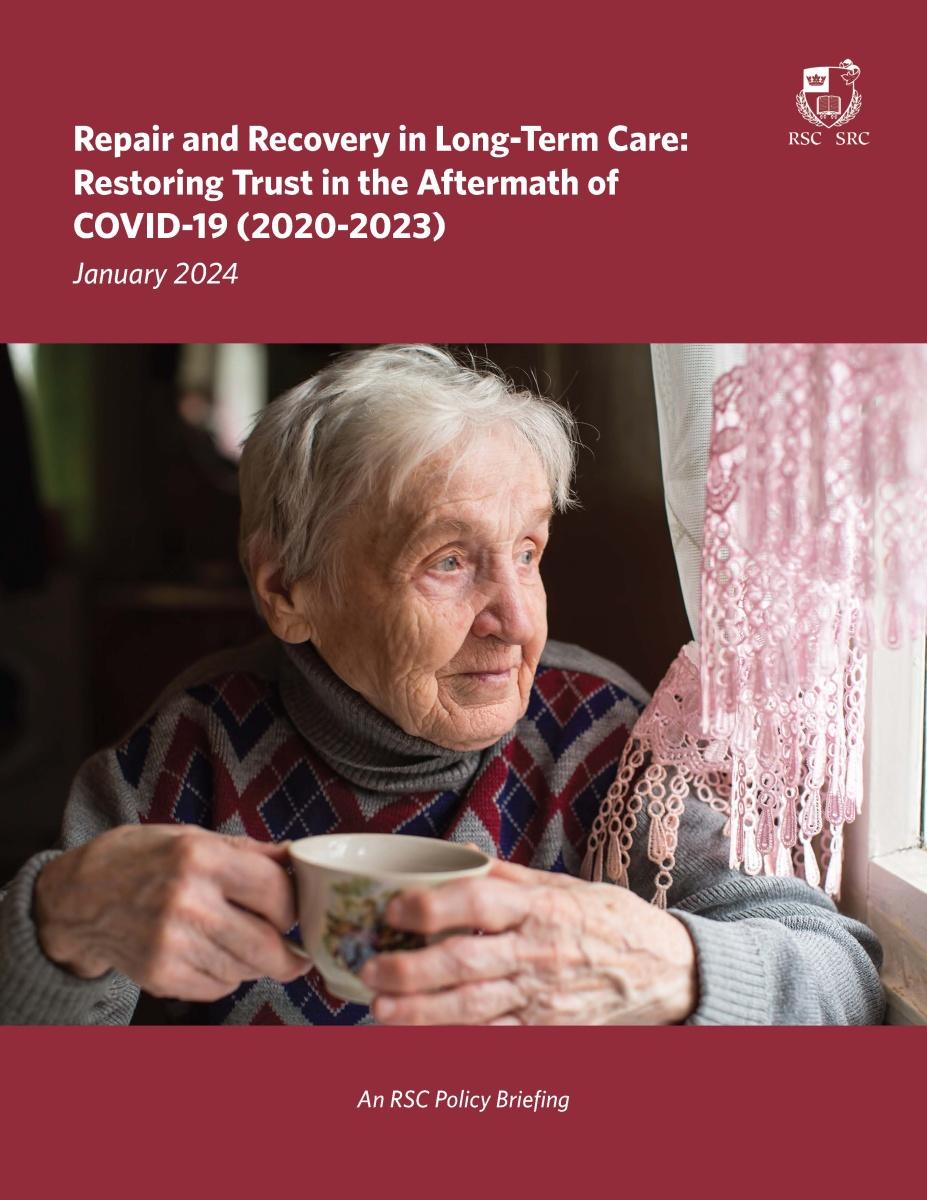
October 2022
CanAge, a national seniors’ advocacy organization, released this report on October 18, 2022, to assess Canada’s level of preparedness to handle the predicted rise in dementia in coming years. Includes evaluations of “dementia-ready” status for each province and territory. Also includes a review of Canada's National Dementia Strategy, and recommendations for national and provincial governments to take next. Source: CanAge.

July 2022
The Third Federal Annual Report on Medical Assistance in Dying presents data for the 2021 calendar year. It builds upon the First and Second Annual Reports on Medical Assistance in Dying. With three full years of data collection now complete, three-year trends provide even greater insight into the picture of medical assistance in dying (MAID) in Canada. Source: Health Canada.
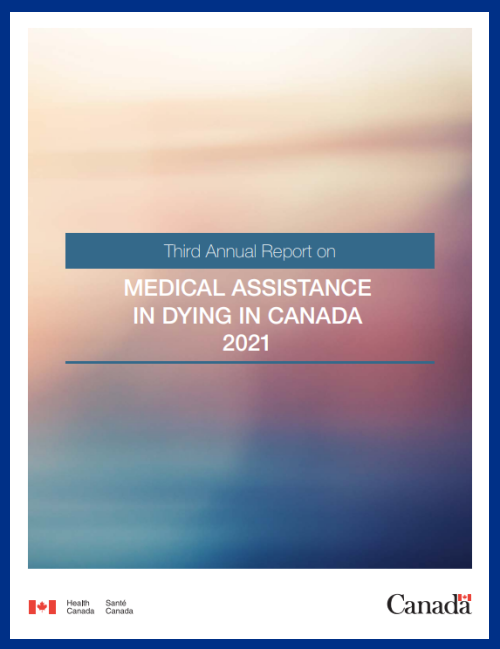
May 2022
The report discusses the significance of gender and sexual identity in experiences of living with dementia and providing care, the many ways that people become carers for 2SLGBTQI people living with dementia, and key needs, gaps, and strategies to mobilize networks of support. This discussion is relevant to the aging population, equity and healthcare access, and care work in Canada. Source: Egale.
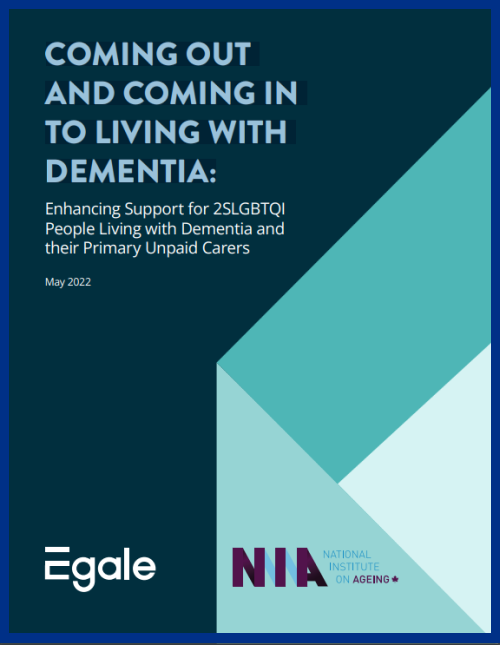
June 2021
This second annual report provides insight in how medical assistance in dying (MAiD) was delivered in Canada in 2020, including data on requests and the administration of MAiD across the country. Source: Health Canada.
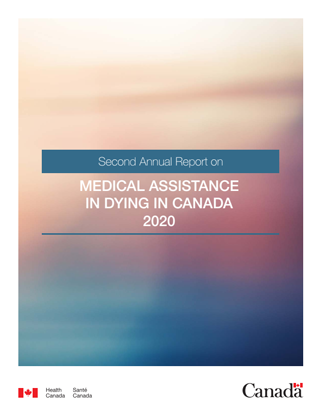
November 2020
The Alzheimer Society of Canada is a member of Organizations for Health Action (HEAL), a coalition of 40 national health organizations. HEAL’s latest consensus statement recommends that the Government of Canada increase its initial investment of $50 million over five years in the national dementia strategy to $150 million to ensure measurable and timely progress on the strategy’s vision and national objectives. Source: HEAL.
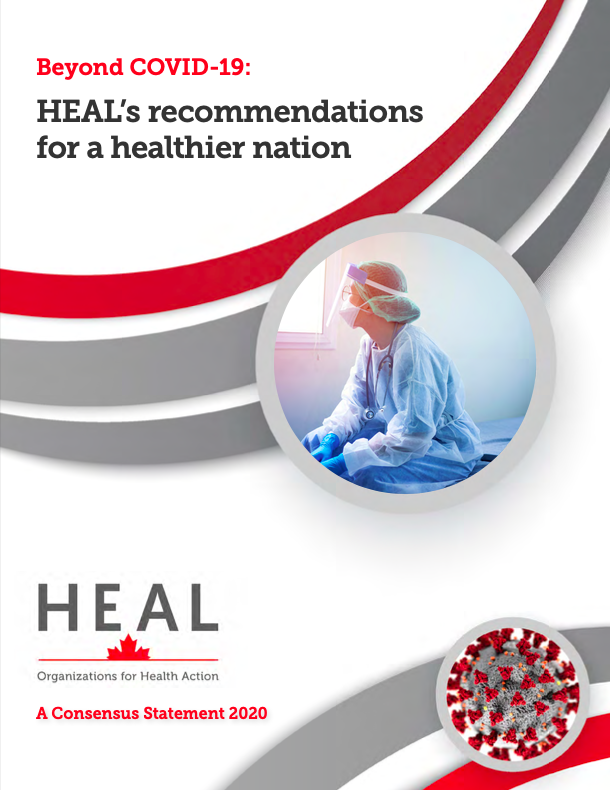
July 2020
This report lists the numbers behind medical assistance in dying (MAID) in Canada, broken down by province and territory, for the 2019 calendar year. This provides the most comprehensive portrait of MAID in Canada to date. Source: Health Canada.
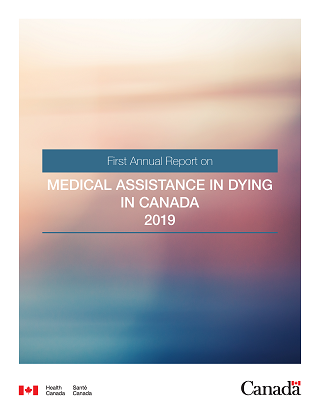
November 2024
The Annual Report to Parliament on the national dementia strategy continues to track key data points related to the strategy's objectives. This year's report marks five years since the release of the national dementia strategy. It highlights annual tracking of dementia data points to help gauge progress on the national dementia strategy's three national objectives– to prevent dementia, advance therapies and find a cure, and improve the quality of life of people living with dementia and caregivers. Source: Public Health Agency of Canada.
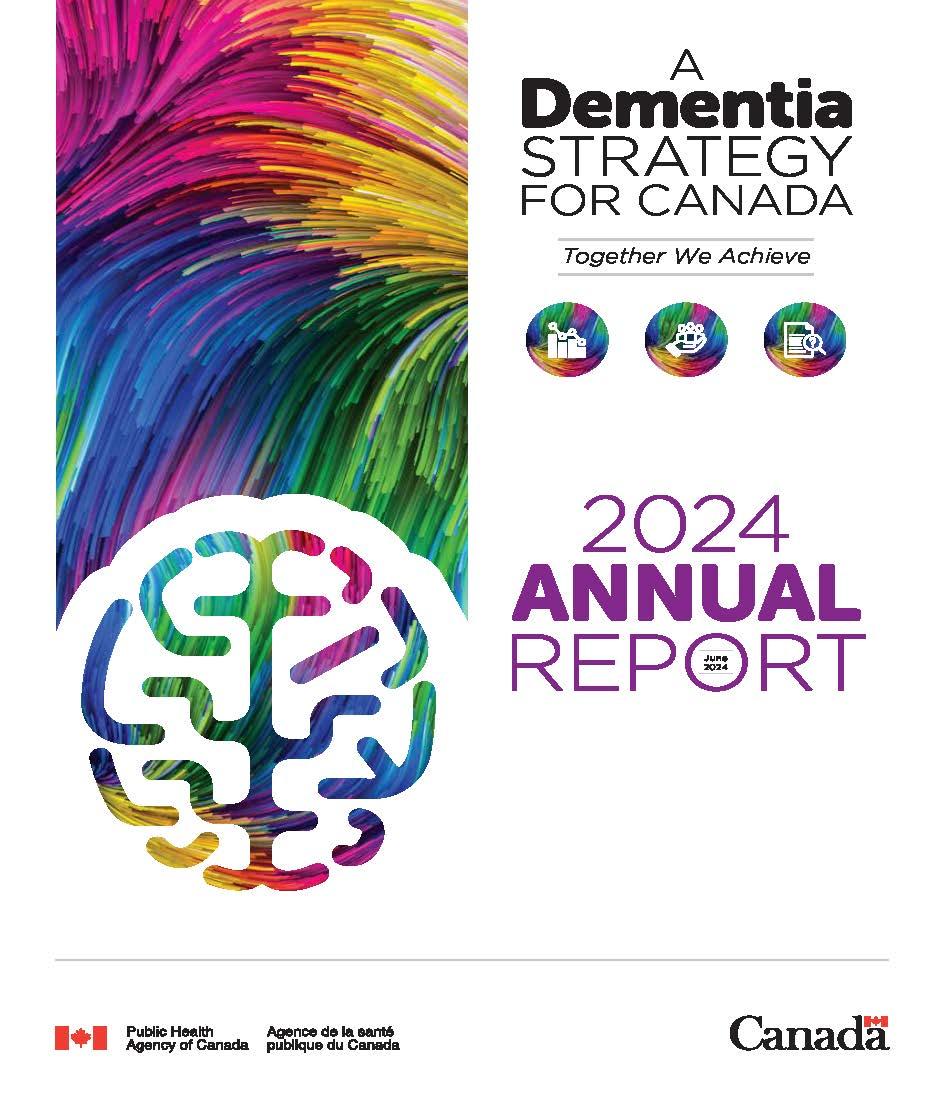
September 2020
The federal Minister of Health has tabled the 2nd annual Report to Parliament on the national dementia strategy. The report is a requirement of the National Strategy for Alzheimer’s Disease and Other Dementias Act. It provides an overview of the strategy’s first year in existence, achievements and plans moving forward. Source: Public Health Agency of Canada.
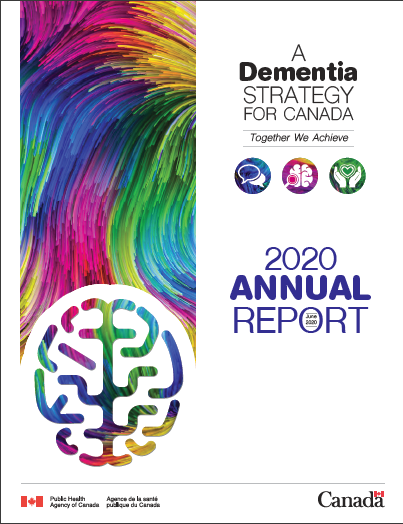
June 2019
This first national dementia strategy focuses on preventing dementia, advancing therapies and finding a cure, as well as improving the quality of life of people living with dementia and caregivers. Source: Public Health Agency of Canada.
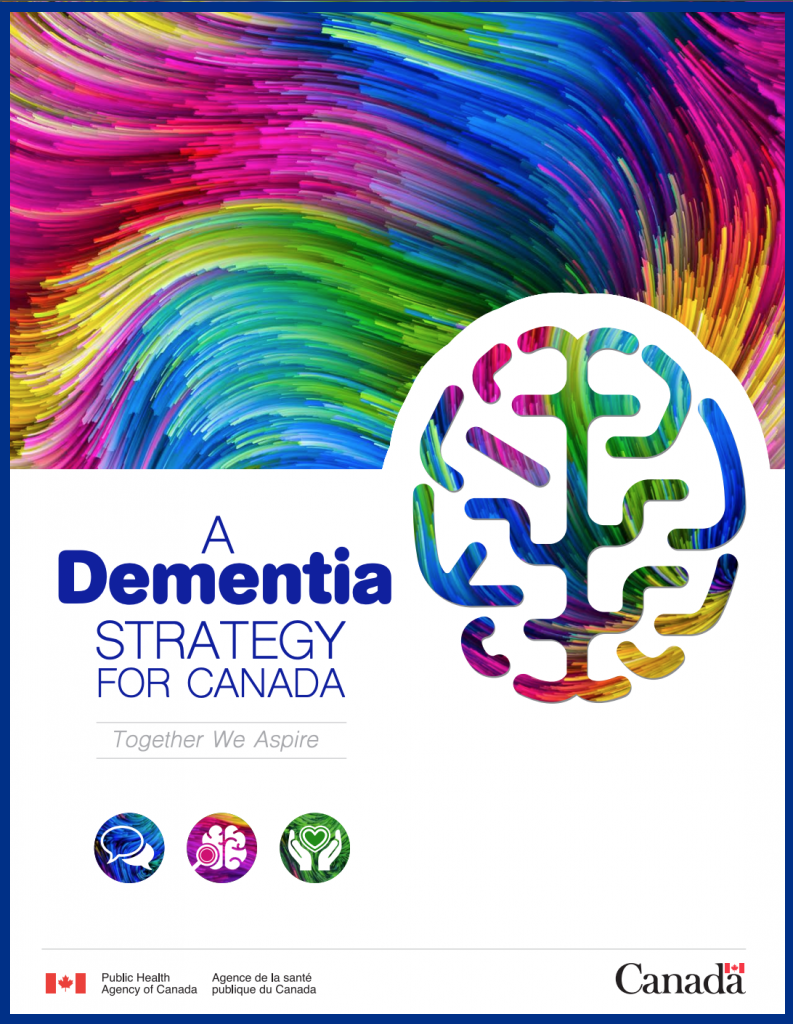
June 2020
This report outlines current deficiencies in Canada’s long-term care system that COVID-19 has laid bare. It recommends nine steps to solving the longtime workforce crisis in long-term care homes. Recommendations include calling for immediate action and the implementation of national standards for long-term care. This report also has an executive summary. Source: The Royal Society of Canada.
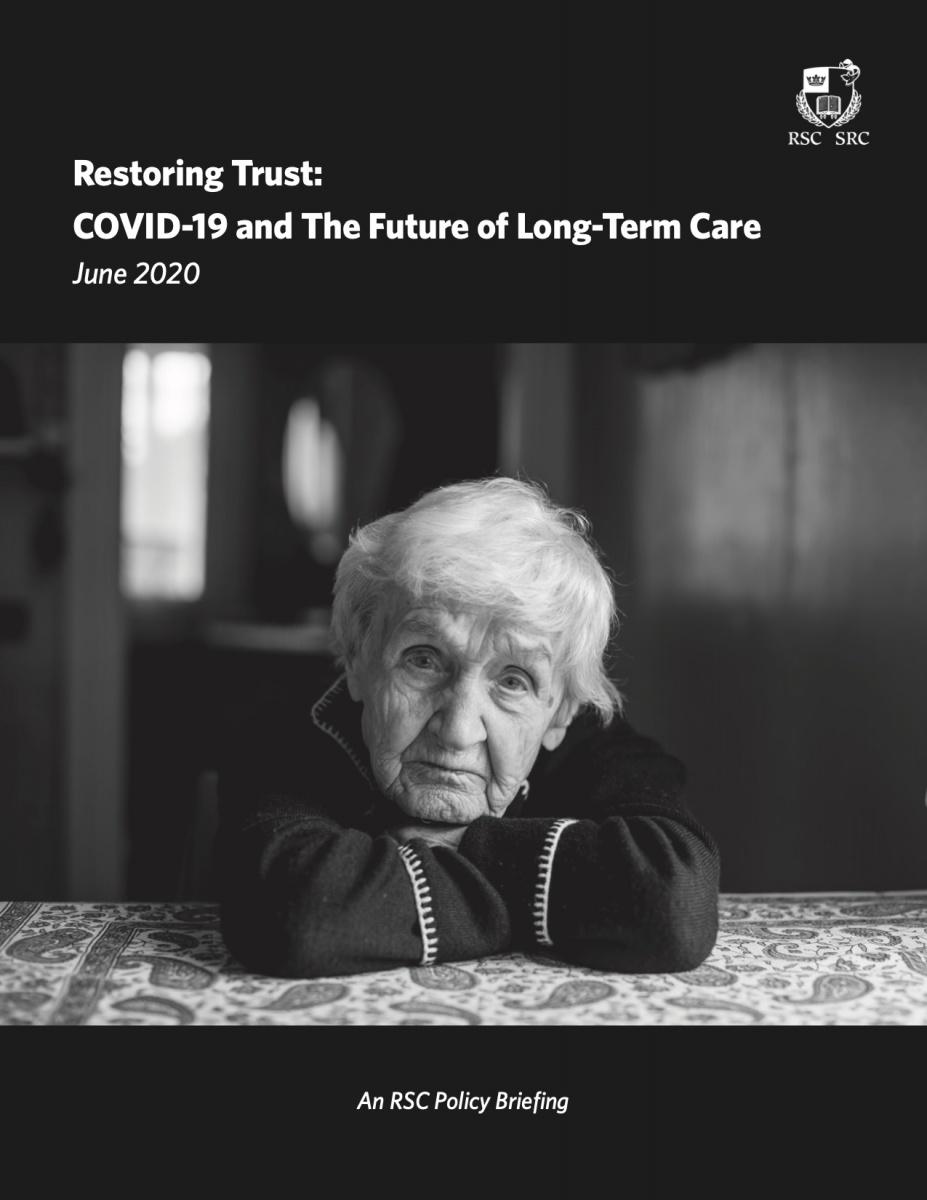
February 2019
This report details the links between heart, stroke and vascular cognitive impairment. New research indicates that heart conditions other than stroke can possibly lead to cognitive decline. This report is also available digitally on the Heart and Stroke website. Source: Heart and Stroke Foundation of Canada.
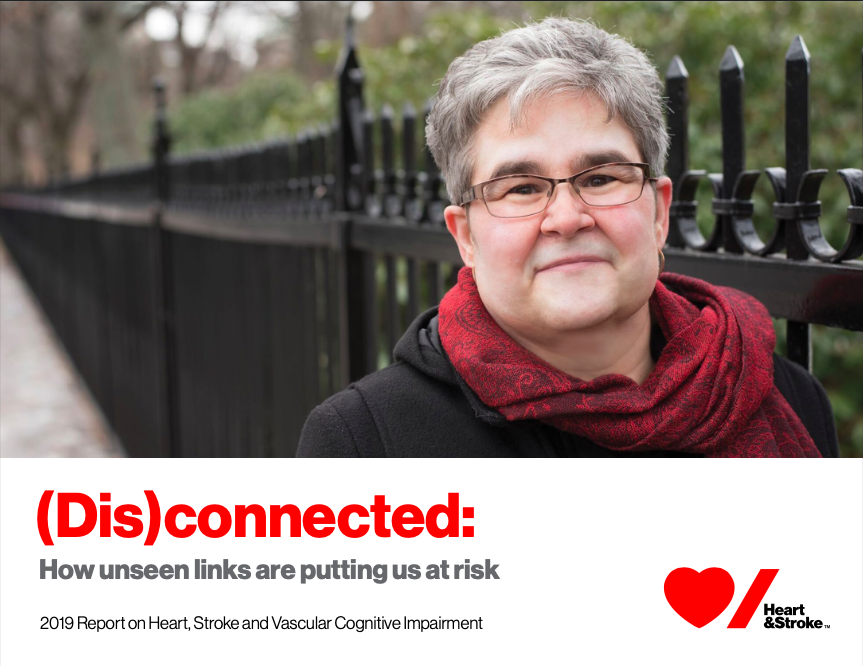
January 2019
In this report, the Canadian Academy of Health Sciences was tasked by the Public Health Agency of Canada to assess current dementia knowledge and best practices to help shape the national dementia strategy. Source: Canadian Academy of Health Sciences.
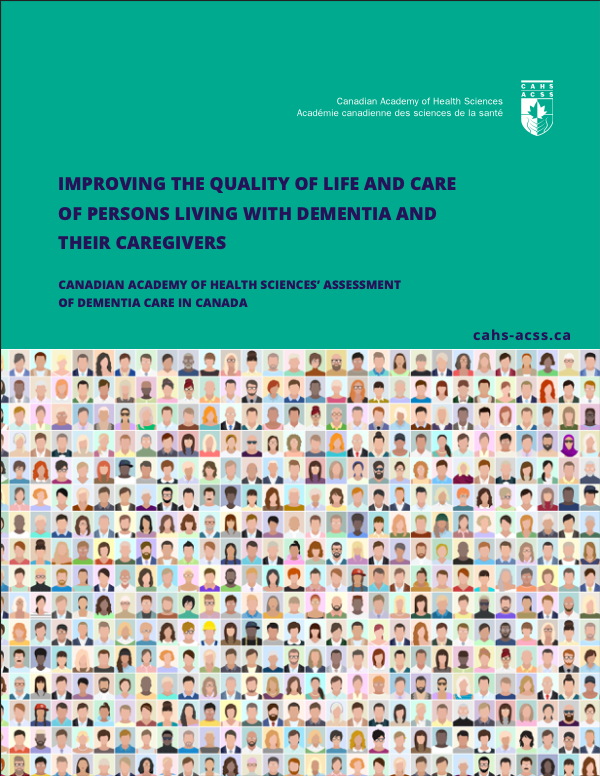
December 2018
The Framework will help inform the development of Canada’s national dementia strategy to benefit the more than half a million Canadians living with dementia today. Source: Health Canada.
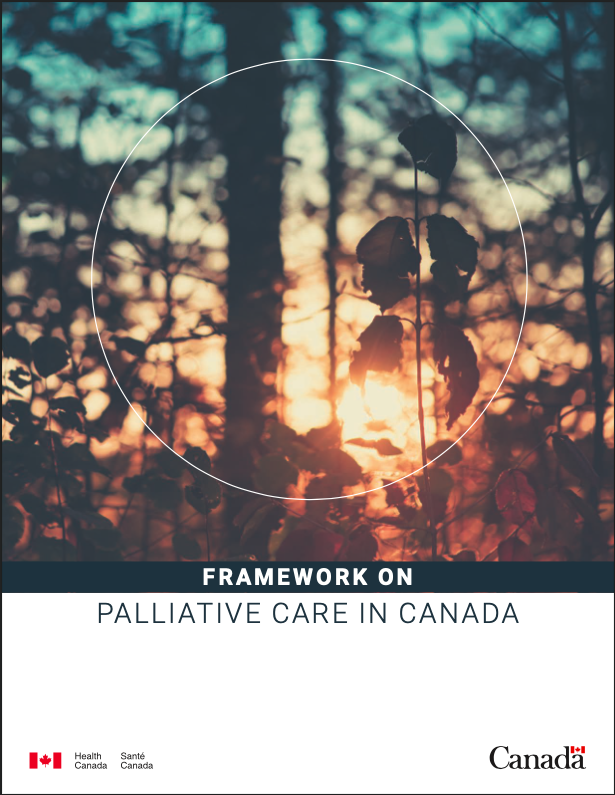
November 2018
This consensus statement from HEAL (Organizations for Health Action) evaluates the action taken by the federal government on health care from 2016 to 2018, and offers additional recommendations on seniors’ care and mental health. Source: HEAL.
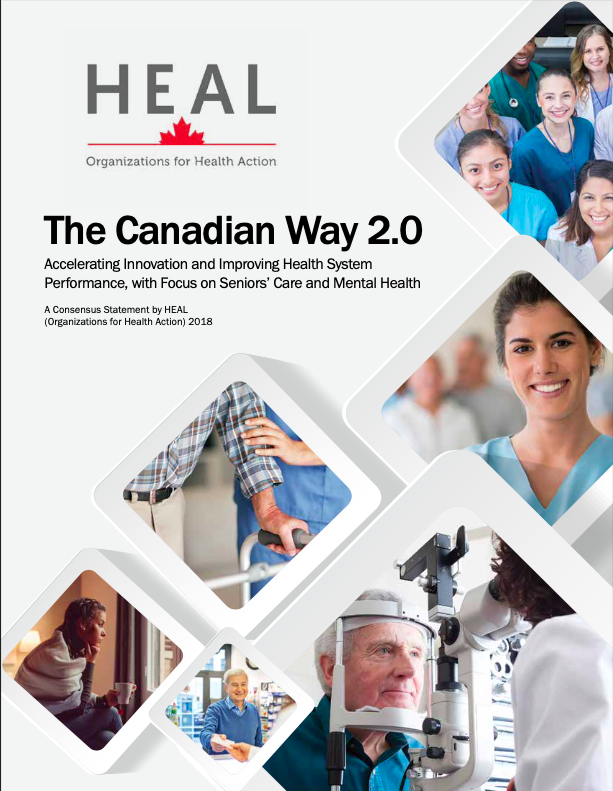
September 2018
Public Health Agency of Canada's summary of the National Dementia Conference on May 14-15, 2018, outlining the plan to develop Canada’s first national dementia strategy. Source: Public Health Agency of Canada.
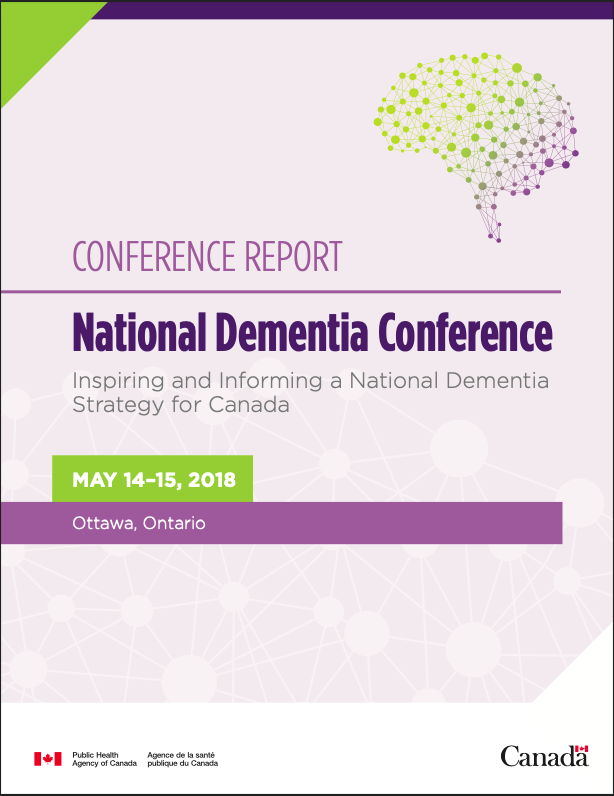
January 2018
In November 2017, the Alzheimer Society surveyed 1,506 Canadians online to get their thoughts and insights on Alzheimer’s disease and other forms of dementia. This report is the summary of those findings. Source: Alzheimer Society.
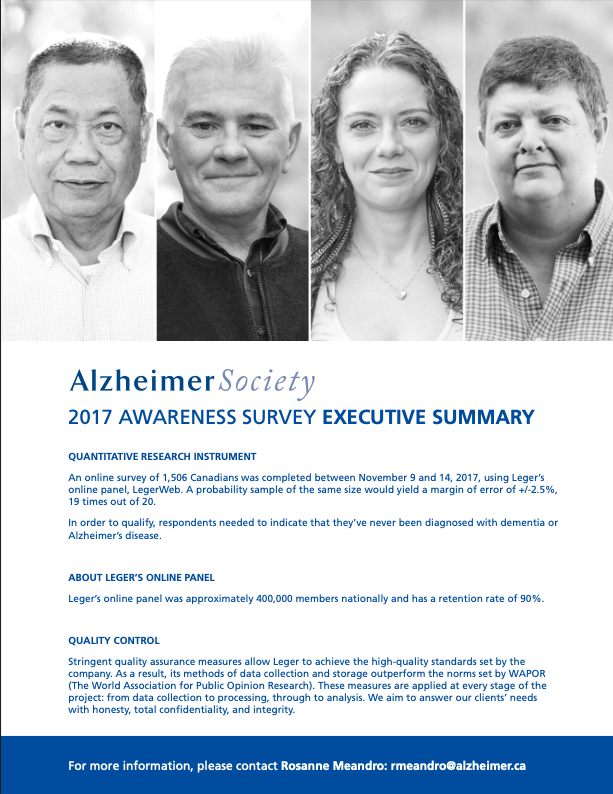
July 2017
Funded by the Alzheimer Society of Canada, this report aimed to identify priority areas for Canadian dementia researchers and research funding organizations. The result of this study identified 10 dementia priorities according to Canadians affected by dementia. Source: Canadian Dementia Priority Setting Partnership.
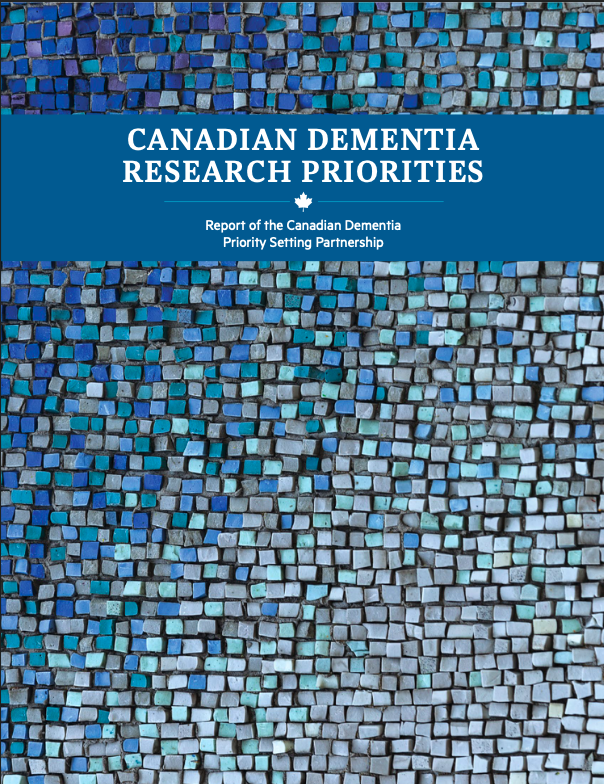
November 2016
The Senate of Canada summarises expert testimony and community consultations, providing a list of 29 recommendations for improving dementia care and support in Canada – including the introduction of a national dementia strategy. Source: Senate of Canada.
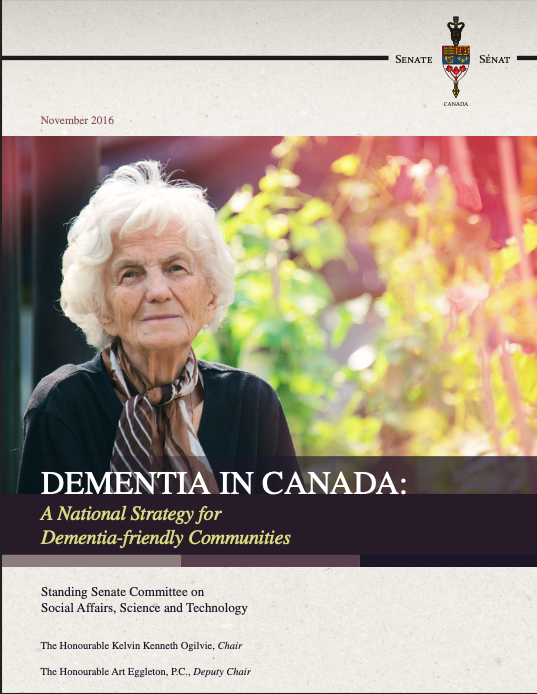
June 2016
The Alzheimer Society of Canada provides an overview of how many Canadians are affected by dementia, and the monetary impact of the disease in Canada. Source: Alzheimer Society of Canada.
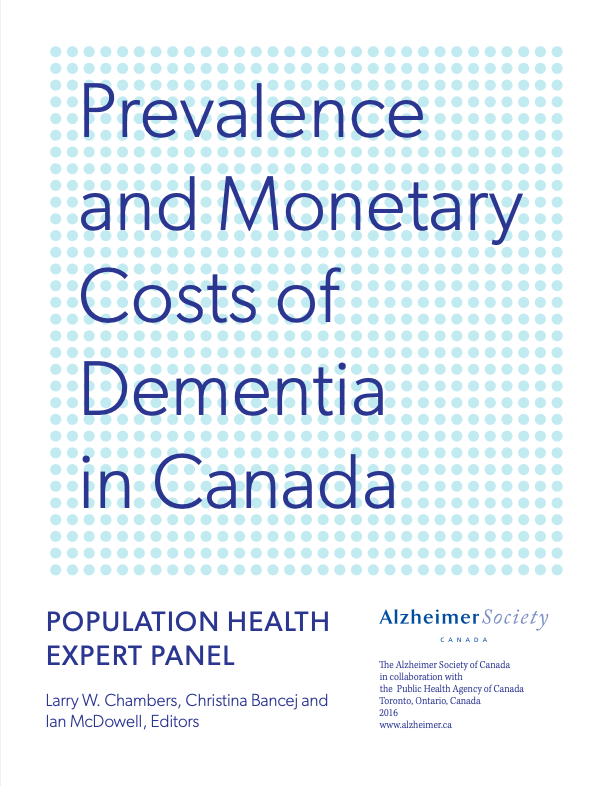
Canadian Institute for Health Information: Dementia in Canada
June 2016. The Canadian Institute for Health Information releases new data on how dementia impacts Canada’s seniors, caregivers, and health-care systems. Digital only.
International reports
Read these reports to learn more about the global impact of dementia.
September 2024
In September 2024, Alzheimer’s Disease International released its second global survey on attitudes towards dementia conducted by the London School of Economics and Political Science, seeking to understand what were the prevailing beliefs, knowledge, and attitudes about the condition at that specific point in time. Source: Alzheimer's Disease International.
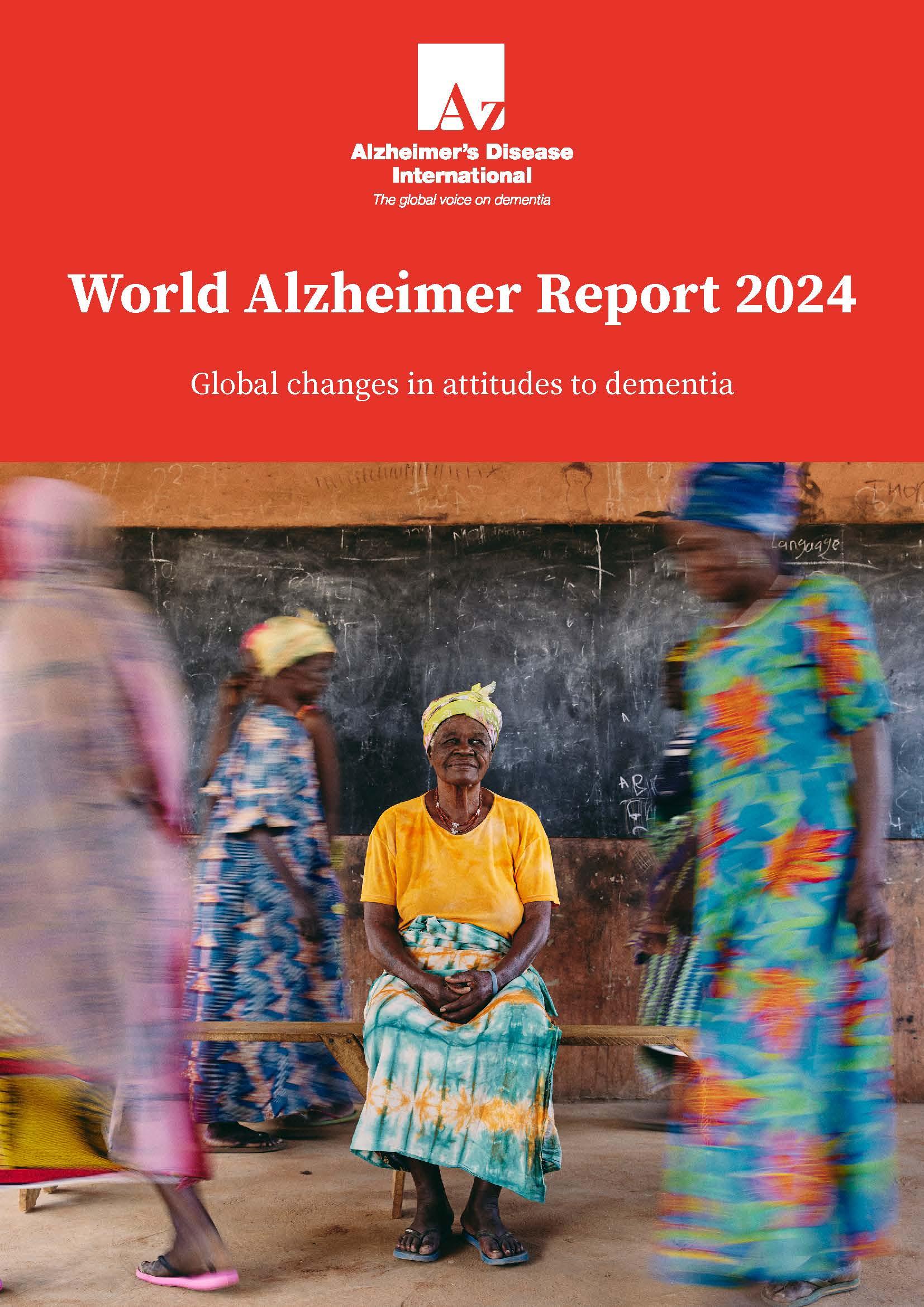
May 2024
ADI’s seventh 'From Plan to Impact' report evaluates global progress and calls for balanced attention to both innovative treatments and essential care services, stressing the vital role of National Dementia Plans in enhancing support systems for people living with dementia and their carers.
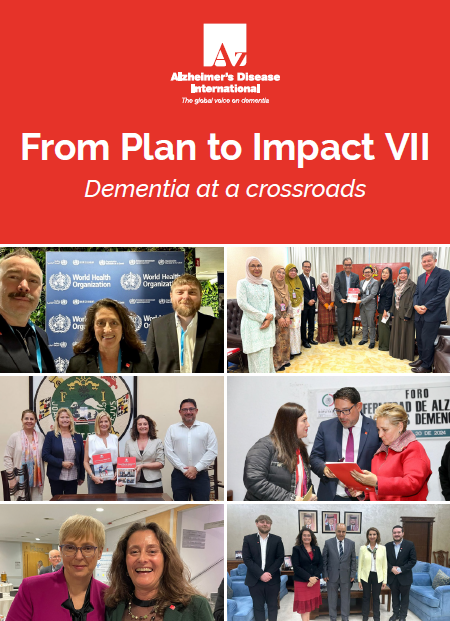
May 2023
This is the sixth From Plan to Impact report, monitoring the progress of the World Health Organization (WHO)'s Global action plan on the public health response to dementia 2017-2025.
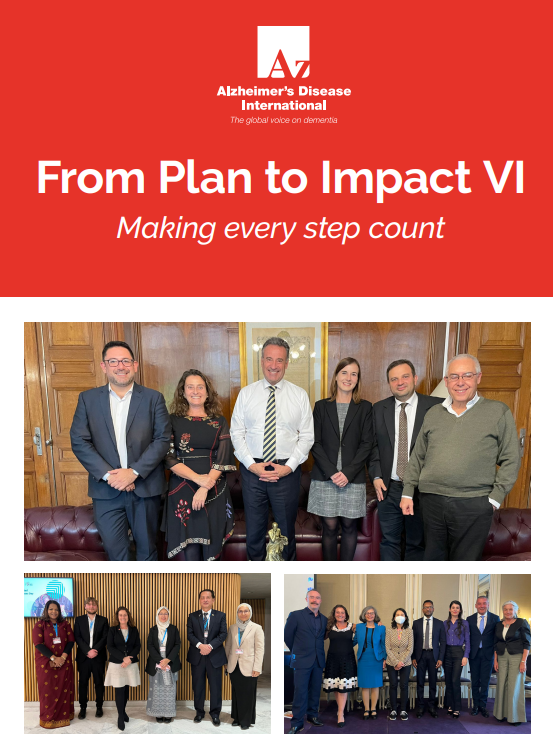
September 2022
This report is dedicated to the vast topic of post-diagnosis support – an umbrella term encompassing the variety of official and informal services and information aimed at promoting the health, social, and psychological wellbeing of people living with dementia and their care partners after a diagnosis. Source: Alzheimer's Disease International.
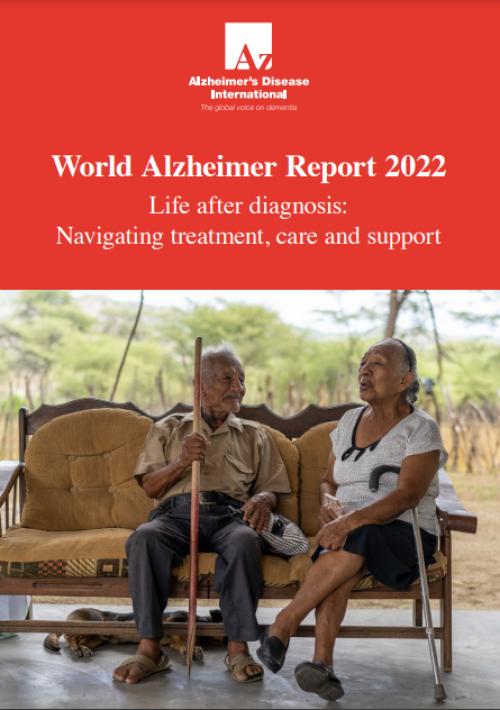
May 2022
This is the fifth From Plan to Impact report, monitoring the progress of the World Health Organization (WHO)'s Global action plan on the public health response to dementia 2017-2025. Source: Alzheimer's Disease International.

September 2021
This report focuses on the crucial and timely subject of diagnosis. Diagnosis is still a major challenge globally, with those who seek a diagnosis often experiencing long wait times, if they are able to receive a diagnosis at all. Societal stigma, self-stigma and clinician related stigma also exacerbate what is already a difficult journey. Source: Alzheimer's Disease International.
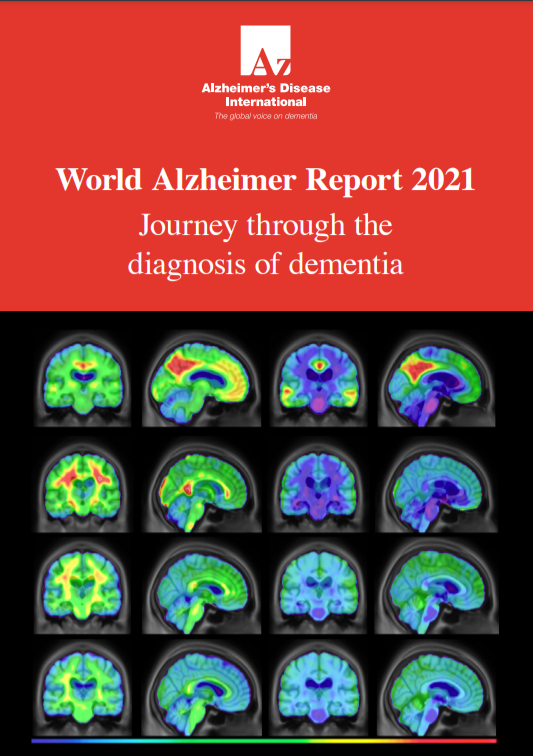
September 2021
This report surveyed over 2,000 people living in the United Kingdom, tracking their attitudes and perceptions toward dementia. Source: Alzheimer's Research UK.
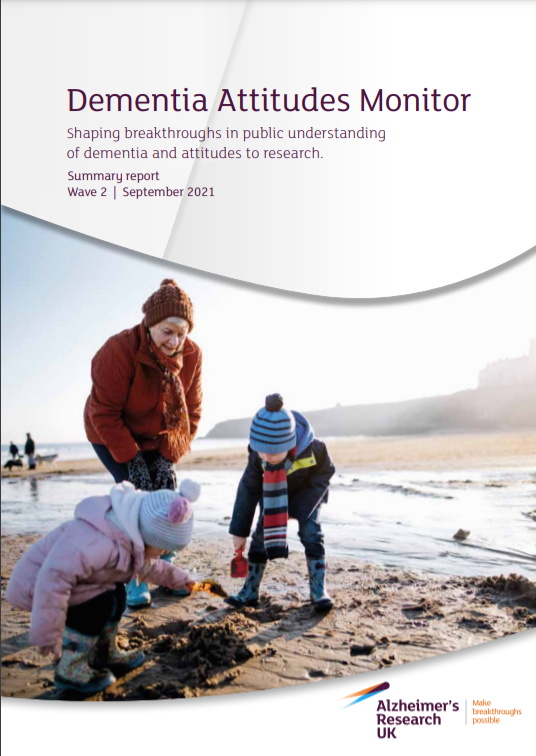
May 2021
The fourth From Plan to Impact report examines progress to date, barriers and enablers. It also looks at how the global dementia community can influence and accelerate progress, working with and advocating to governments to develop and deploy essential national dementia plans. Source: Alzheimer's Disease International.
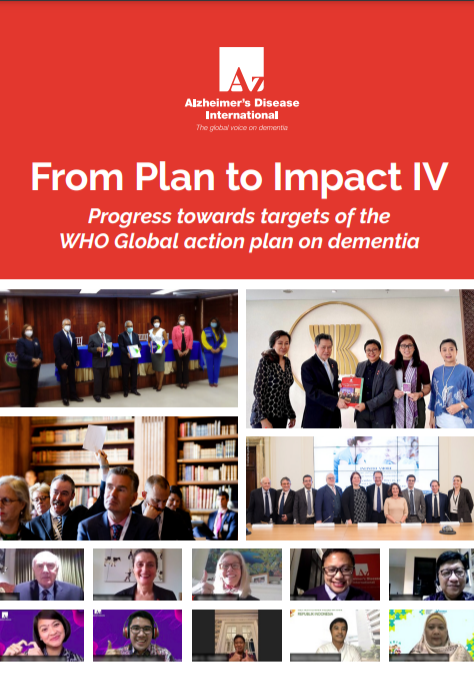
September 2020
In the second of of two volumes, this report examines 84 case studies of dementia-related design in home/domestic settings, day and residential care, hospitals and public buildings and spaces. Source: Alzheimer's Disease International.
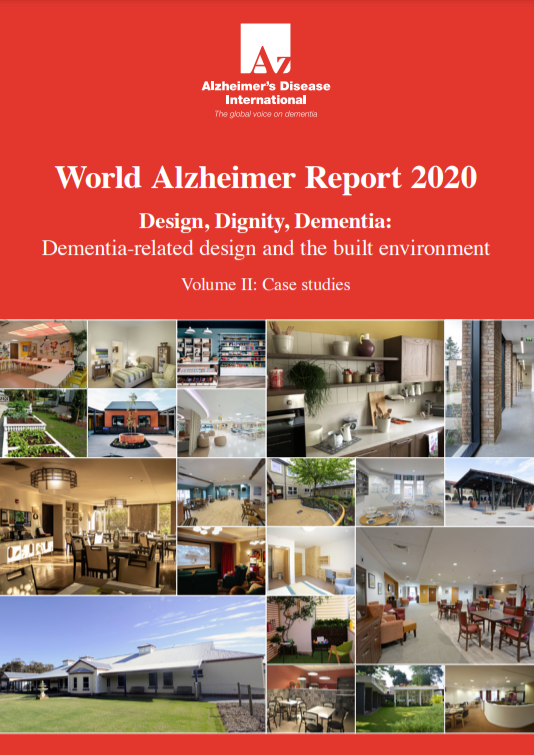
September 2020
In the first of two volumes, this report takes a global perspective of dementia-related design that takes a cross cultural approach, reflects regional and economic differences in low-, middle- and high-income countries, and considers urban versus rural settings. It highlights the role of innovation, entrepreneurship and the importance of aesthetics. Source: Alzheimer's Disease International.
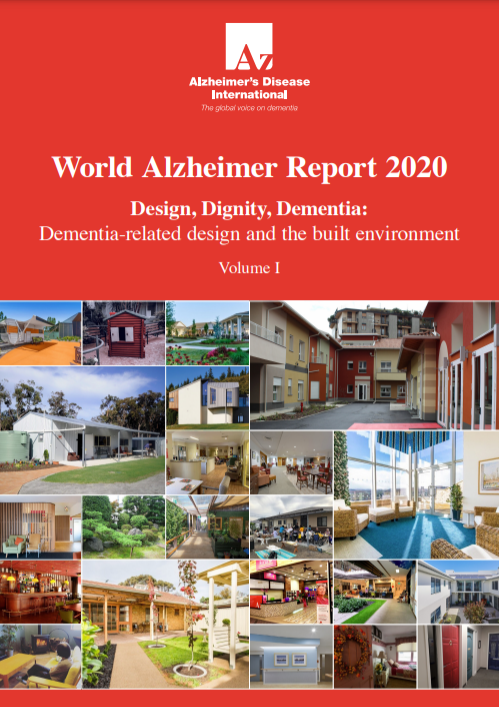
June 2020
The third From Plan to Impact report provides a critical update on the progress towards the World Health Organization (WHO)’s Global action plan on the public health response to dementia 2017-2025, particularly in relation to the COVID-19 pandemic. Source: Alzheimer's Disease International.
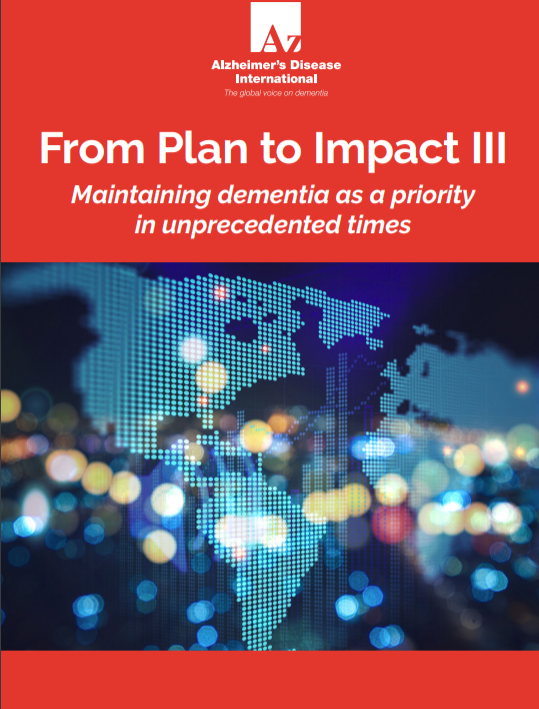
September 2019
The latest report from ADI features a global survey on attitudes to dementia, Almost 70,000 respondents from 155 countries gave their thoughts on topics like the attitudes of healthcare practitioners to dementia, the experiences of carers, intimacy and relationships and whether dementia can be a laughing matter. Source: Alzheimer's Disease International.
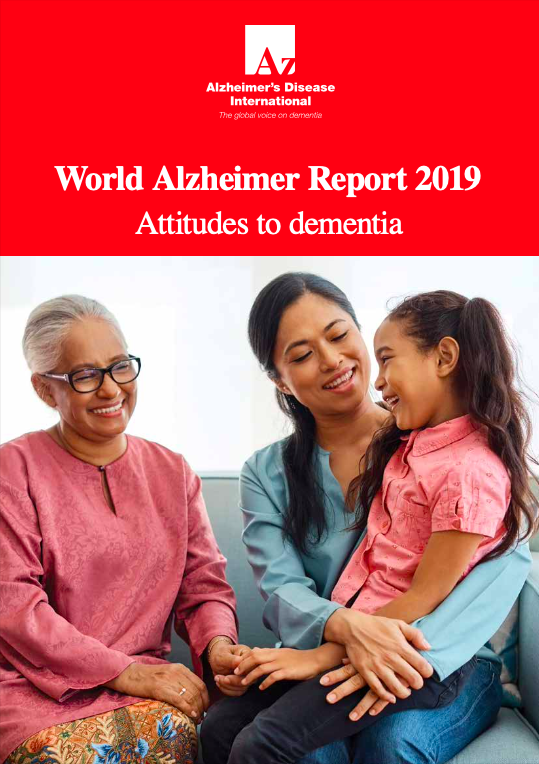
May 2019
The report updates the progress toward the WHO’s Global Action Plan, delving deeper into the seven action areas that were introduced in the plan. Source: Alzheimer's Disease International.
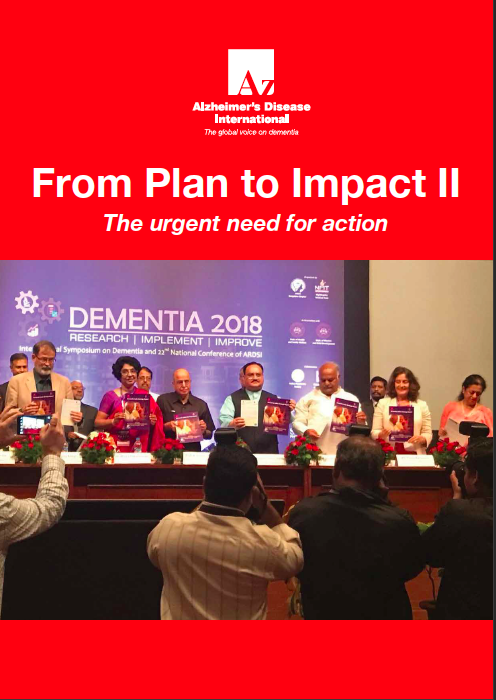
September 2018
This report tackles some of the complex questions surrounding dementia research. It looks at the hopes and frustrations and asks why there have been no major medical treatment breakthroughs for over 20 years. Source: Alzheimer's Disease International.
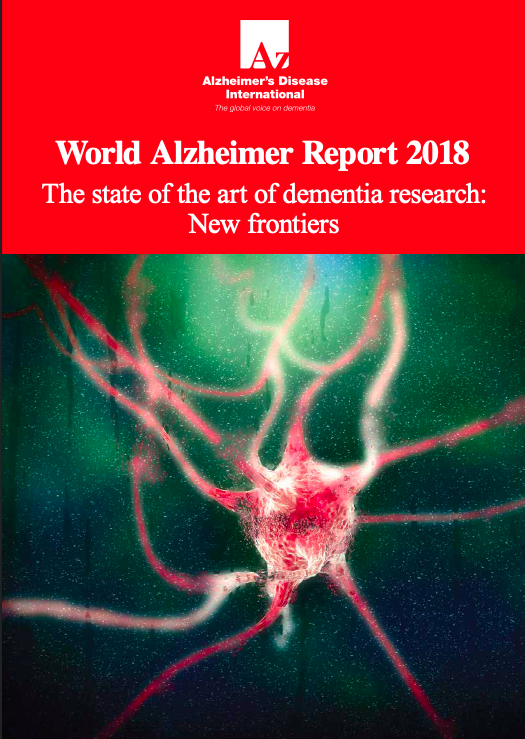
May 2018
One year after the Global Action Plan on Dementia was introduced, Alzheimer’s Disease International (ADI) looks at progress made towards the Plan’s 2025 targets. Source: Alzheimer's Disease International.

2018
Thirty-two countries have implemented national dementia plans. Learning from their experiences, the World Health Organization (WHO) put together a guide for countries – like Canada – striving to develop a plan of their own. Source: World Health Organization.
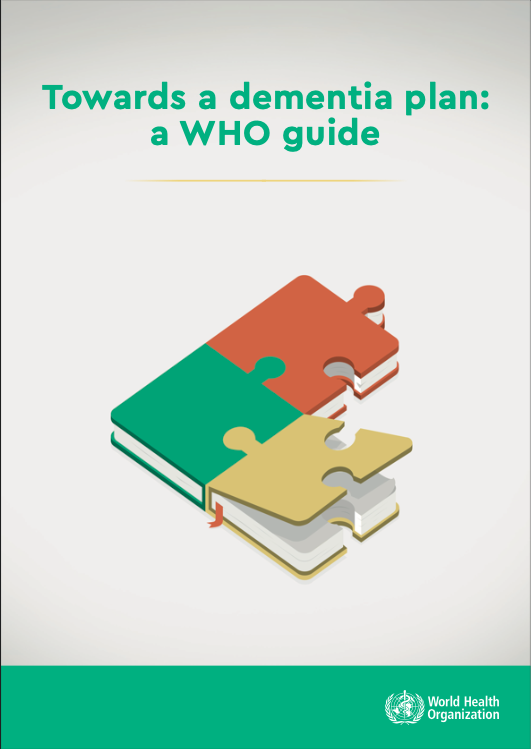
2017
The World Health Organization (WHO) lays out “ambitious targets” to be met by 2025, for the improvement of the health and wellbeing of people affected by dementia worldwide. Source: World Health Organization.
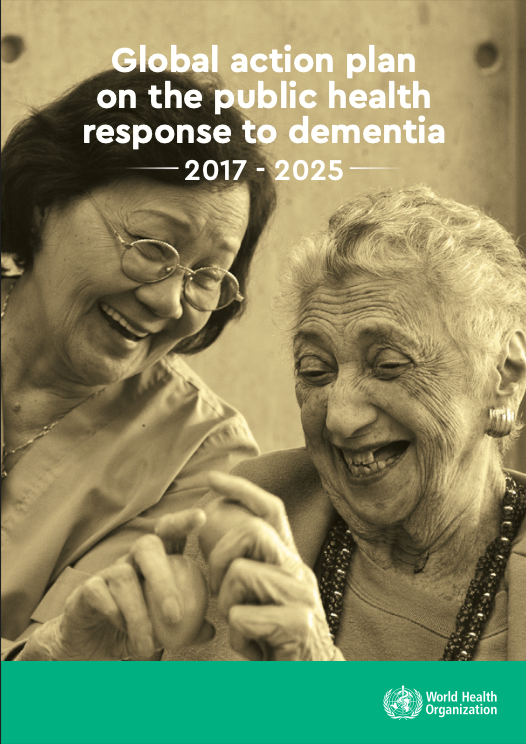
September 2016
ADI reviews “research evidence on the elements of healthcare for people with dementia, and, using economic modelling, suggests how it should be improved and made more efficient.” Source: Alzheimer's Disease International.
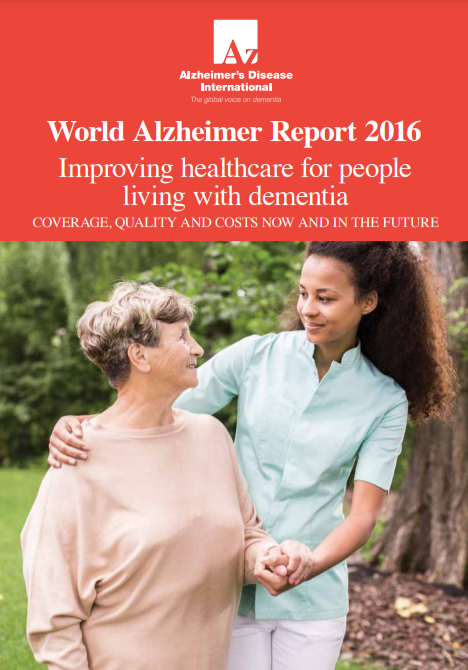
March 2016
The California-based Milken Institute investigates the financial burden dementia places on American women, especially caregivers. A technical update to this report was released in September 2019. Source: Milken Institute.
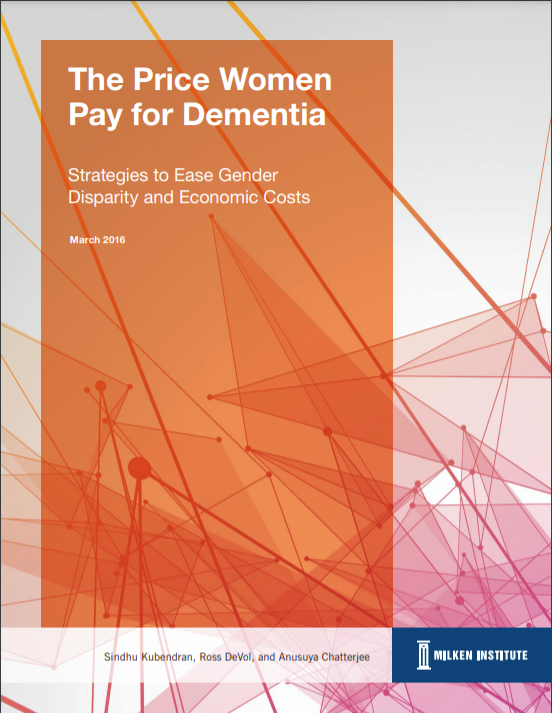
2012
In this report, the World Health Organization (WHO) provides “an overview of global epidemiology and the impact of dementia, national-level approaches to dementia including the role of health and social care systems and workforce, issues around caregiving and caregivers, and awareness raising and advocacy for dementia.” Source: World Health Organization.
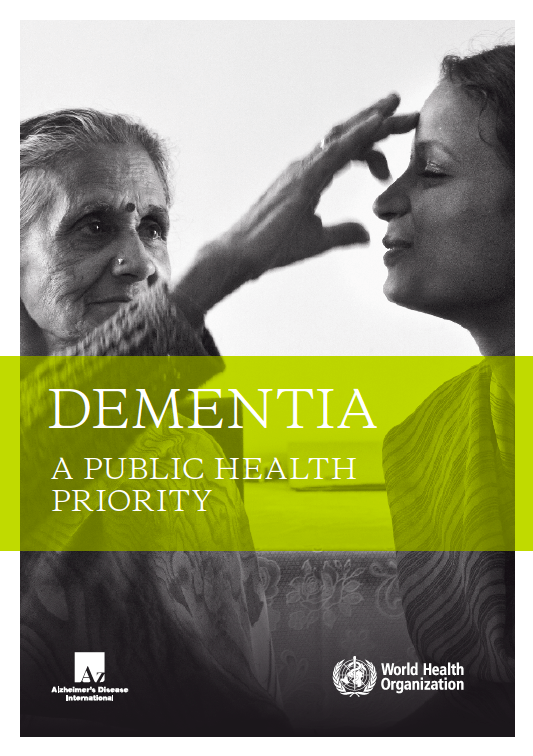
Other reports
OECD Health Policy Studies: Care Needed: Improving the Lives of People with Dementia
2018. This report examines the approaches to dementia care taken by the 36 member countries of the Organisation for Economic Co-operation and Development (OECD). Digital only.
United Nations: Concluding Observations on the Initial Report of Canada
May 2017. The UN Committee on the Rights of Persons with Disabilities offers feedback and recommendations on Canada’s compliance with the Convention on the Rights of Persons with Disabilities – a landmark international treaty ratified by Canada in 2010. Digital only.
Alzheimer Society impact and accountability reports
These reports detail the impact of the Alzheimer Society of Canada and its Alzheimer Society Research Program. Ordered by date of publication. If you would like a printed copy mailed to you, please e-mail us at research@alzheimer.ca.
A digital version of this report is also available.
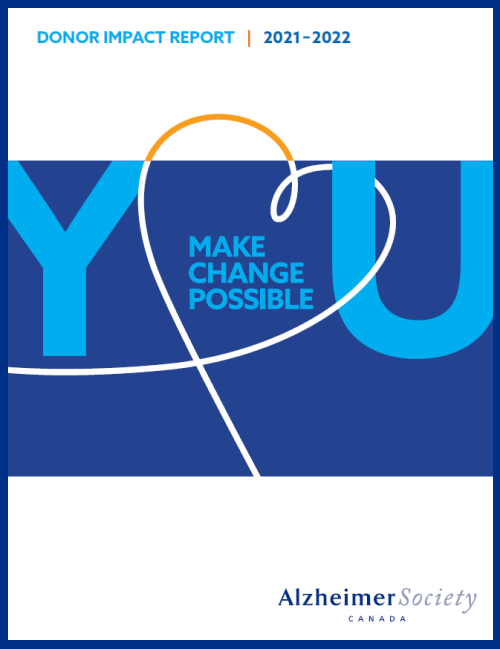
Thank you for supporting the next wave of dementia research. Read this donor impact report to get the full picture of how your generosity is funding innovative treatments and unlocking new ways to improve the quality of life of people living with dementia and caregivers in Canada. A digital version of this report is also available.
You can also check out the list of our annual and impact reports.
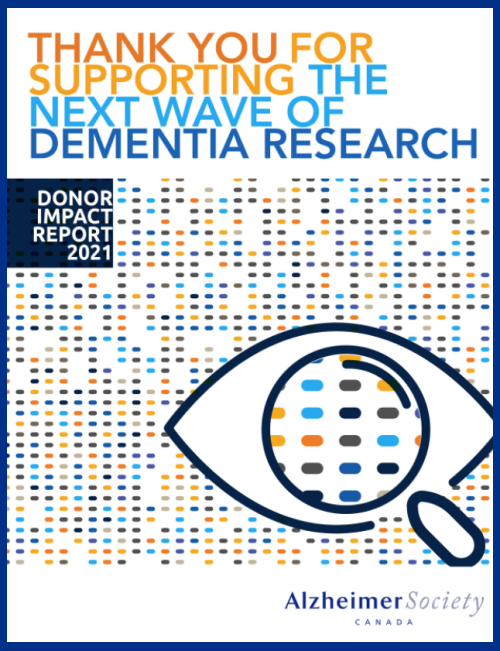
A digital version of this report is also available.
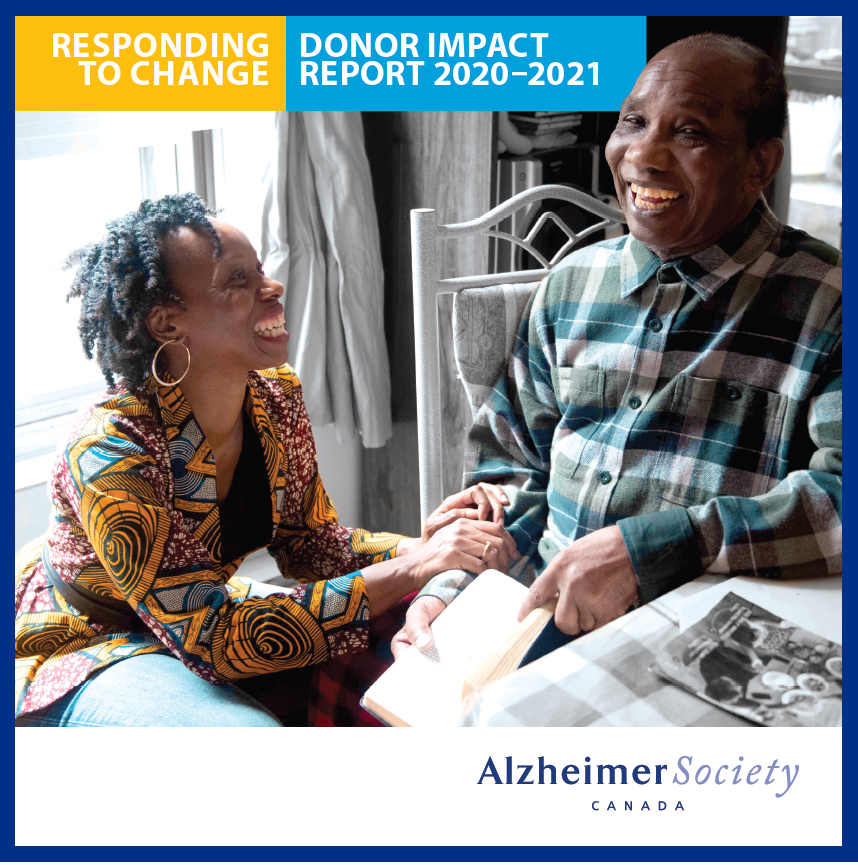
A digital version of this report is also available.
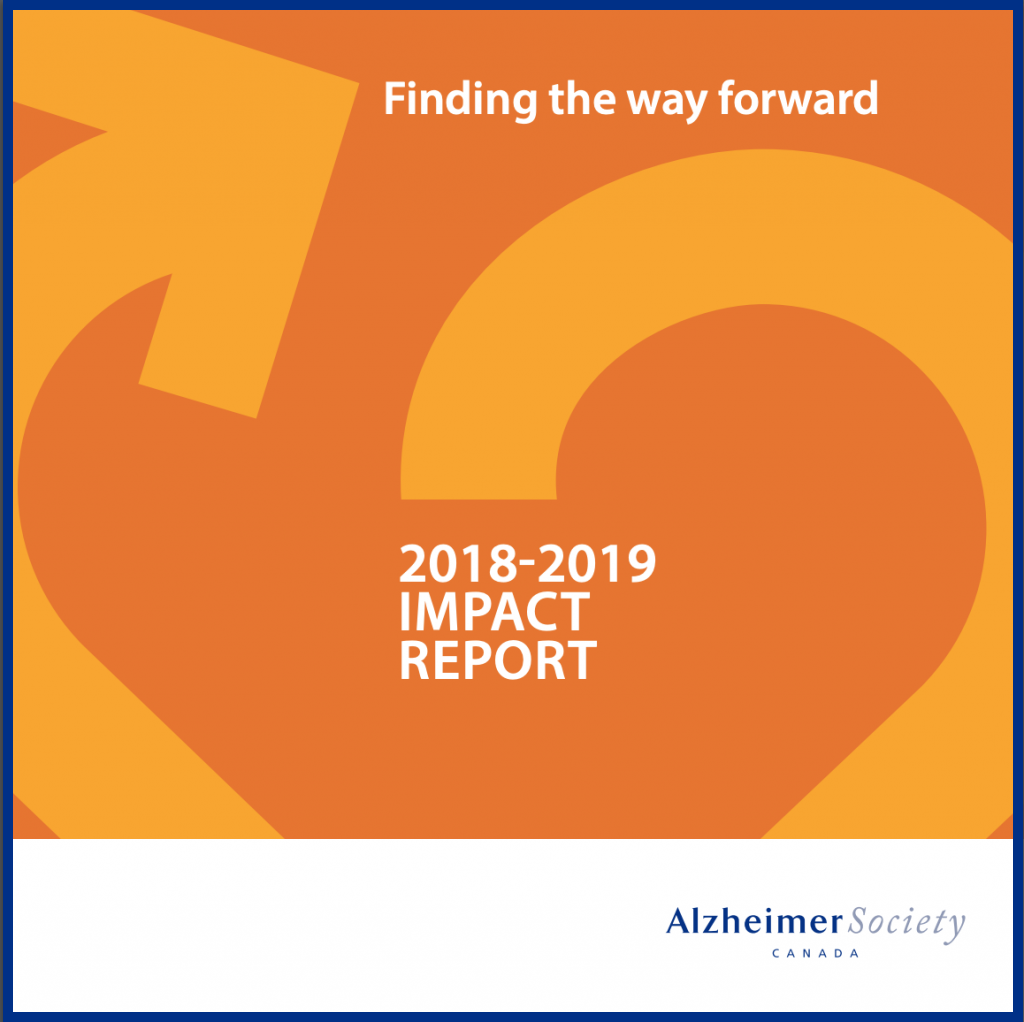
A digital version of this report is also available.

